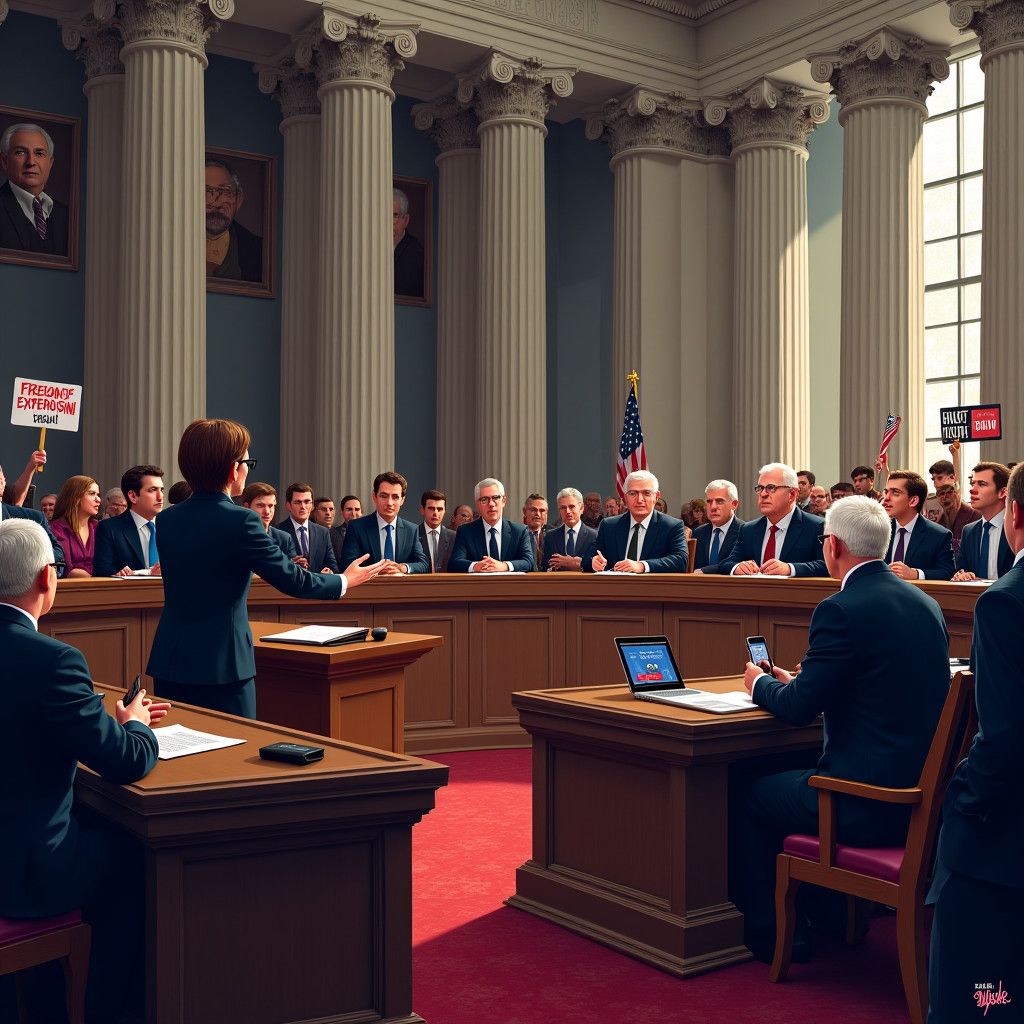As the digital landscape becomes increasingly intertwined with politics, TikTok finds itself at an unprecedented legal crossroads. The US Supreme Court is set to hear the social media giant’s appeal to block a potential ban, which could reshape the app’s future in America. Amidst rising geopolitical tensions and concerns regarding user data security, this case poses significant implications for both TikTok and the app’s millions of users in the United States.
The stakes are particularly high. TikTok has captured the attention of roughly 100 million Americans who use the app daily for entertainment, education, and social connection. The potential ban, driven by a perceived threat to national security, is partly rooted in TikTok’s ownership by the Chinese company ByteDance. Critics argue that the Chinese government could compel the company to share sensitive user data, thus risking the privacy of American citizens.
In a bid to counter these claims, TikTok has consistently asserted that it prioritizes user data security. The company has taken steps to store American user information on domestic servers while ensuring that content moderation is conducted within the United States. For instance, TikTok established a transparency center in Los Angeles to provide external stakeholders insight into its operational protocols. Yet, despite these efforts, widespread fears about data privacy remain a significant hurdle as the case prepares to be argued in court.
Legal experts suggest that the Supreme Court’s decision could set a precedent for how social media companies are regulated in the U.S. If TikTok succeeds in blocking the ban, it may pave the way for other international tech giants to operate without fear of abrupt policy changes based on geopolitical concerns. Conversely, if the Court sides with the government, it may legitimize aggressive regulations that could impact not only TikTok but potentially other foreign-owned platforms.
This situation is not unprecedented. History has shown that past judgments have hugely influenced the tech industry landscape. For example, the Supreme Court’s ruling against the merger of AT&T and Time Warner in 2018 helped to define competitive practices within telecommunications. Such precedents indicate how the outcomes of such cases extend far beyond the immediate parties involved.
The public’s response to TikTok’s potential ban has been polarized. Supporters argue that the platform fosters creativity and innovation, serving as a launching pad for aspiring artists, educators, and influencers. Many creators, such as the popular chef José Andrés, have utilized the app to share cooking tips and engage with communities and fans in authentic ways. The loss of TikTok could hinder these voices, limiting the diversity of content available to users.
On the other hand, critics worry that the app’s connection to China poses a real security risk. National security experts have urged vigilance, arguing that the level of control the Chinese government holds over ByteDance necessitates stringent regulations on the app’s operations in the U.S. Should the Court uphold the ban, it would reflect a commitment to protecting American citizens’ data from potential foreign exploitation.
The upcoming legal battle has attracted the attention of major political figures, with politicians from across the spectrum voicing opinions on the matter. For example, some lawmakers are advocating for tighter regulations on not only TikTok but on all foreign-owned applications that operate on American soil. The future of these platforms hinges on how responsibly they can govern user data and how receptive authorities are to developing regulations that both protect users and allow for innovation.
In the coming weeks, as the national spotlight shines on this pivotal case, businesses and tech companies will closely monitor the developments. The ruling may not only affect TikTok but could also lead to broader implications for app regulations globally. The results could influence how businesses strategize their operations within the U.S. market.
Consumers are also encouraged to pay attention to this case, as its resolution may impact the apps they enjoy daily. While data security is crucial, the avenues for creativity and community building offered by platforms like TikTok must also be preserved. As discussions surrounding privacy and user rights evolve, one thing remains clear: the outcome of this case will significantly shape the future of social media regulation in the United States.
As this legal drama unfolds, all eyes will be waiting to see whether the Supreme Court will favor user connectivity and innovation or prioritize national security over personal freedom.












